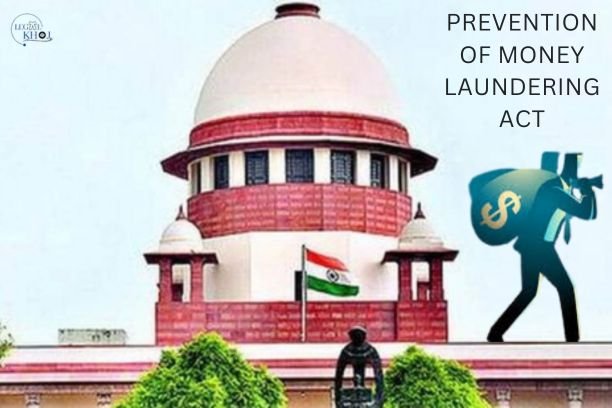“The Supreme Court recently issued a notice in a case that centers on the issue of whether a property acquired before the alleged commission of scheduled offenses under the Prevention of Money Laundering Act (PMLA) 2002, can be classified as “proceeds of crime” eligible for attachment by the Enforcement Directorate (ED).”
“Another question emerging from this case is whether the Prevention of Money Laundering Act (PMLA) would take precedence over the Securitisation and Reconstruction of Financial Assets and Enforcement of Security Interest (SARFAESI) Act, as well as the Recovery of Debts due to Banks and Financial Institutions Act.”
Background of Enforcement Directorate
“A bench consisting of Justices Abhay S. Oka and Pankaj Mithal has issued a notice regarding a Special Leave Petition filed by the Ministry of Finance, Government of India. This petition challenges a judgment by the Patna High Court, which invalidated the Directorate of Enforcement’s provisional attachment of specific properties that had been mortgaged with HDFC Bank.”
“The bench has consolidated the current matter with SBI v. Dr. Kewal Kishan Sood In that case, the Delhi High Court had ruled that, under the Prevention of Money Laundering Act (PMLA), the authorized enforcement officer possesses the legal authority to attach not only a “tainted property” but also any other asset or property of equivalent value associated with the money laundering offender. The latter may not inherently possess any taint but becomes attachable due to its connection or nexus with the money laundering offense or offender, being treated as alternative attachable property (or deemed tainted property).”
“In this case, a legal conflict had surfaced between HDFC Bank Limited and the Enforcement Directorate concerning three real estate properties that had been mortgaged by a respondent to secure an overdraft loan facility. The case pertains to accusations of money laundering during the demonetization period in 2016, leading to the subsequent attachment of these properties by the enforcement-directorate.”

“In the ongoing legal case, a dispute emerged between HDFC Bank Limited and the Enforcement Directorate concerning three real estate properties utilized as collateral for an overdraft loan facility by a party involved. The case centers on accusations of money laundering during the demonetization period of 2016, leading to the subsequent attachment of these properties by the enforcement-directorate.”
“This led to suspicions of money laundering, prompting the Deputy Director of Enforcement to take action by provisionally attaching the three mortgaged properties and the bank accounts of respondent No. “under the provisions of Section 5 of the Prevention of Money Laundering Act, 2002 (PMLA).”. In response, HDFC Bank expressed concerns about its rights to the mortgaged properties under Section 31B of the Recovery of Debts and Bankruptcy Act, 1993. On November 17, 2017, the bank filed a written objection contesting the provisional attachment. Subsequently, a writ petition was submitted to the Patna High Court.”
“The High Court began its examination by deconstructing the three constituents delineated in Section 2(1)(u) of the PMLA, which provides the definition of “proceeds of crime.” These components include:”
- Property derived or obtained, directly or indirectly, as a consequence of criminal activity associated with the scheduled offense.
- The value of property derived or obtained from criminal activity.
- Property of equivalent value held within India or abroad when property obtained or derived from criminal activity is located or held outside the country.”
The Court further clarified that the second component of the definition (No. II) pertains solely to the value of property acquired through criminal activities and does not include any property owned by the individual engaged in money laundering.
The Patna High Court had ruled, “In my opinion, property obtained from legitimate sources cannot be subject to attachment solely because property derived from scheduled offenses is not available for attachment. No. II, as mentioned, pertains exclusively to the value of property acquired or derived from criminal activities and does not encompass any property belonging to the person accused of involvement in money laundering. Otherwise, the legislature would not have provided a definition for the ‘proceeds of crime,’ which could be attached under Section 5 of the PMLA.”
The High Court relied on a division bench judgment from the Punjab and Haryana High Court in the case of Seema Garg v. Deputy Director, enforcement directorate, 2020 SCC Online P & H 738. This judgment affirmed that “Property acquired before the commission of a scheduled offense, irrespective of the date of the enactment of the PMLA, does not fall under the scope of the initial aspect of the ‘proceeds of crime’ definition. To grasp the true intent of the second component of the ‘proceeds of crime’ definition, it must be read in conjunction with Sections 3 and 8 of the PMLA. When all these sections are read together, the phrase ‘value of such property’ does not encompass any property lacking a direct or indirect connection with the property obtained from the commission of a scheduled offense, in other words, the alleged criminal activity. ‘Value of such property’ refers to property that has been transformed into another property or has been acquired based on property obtained from the commission of a scheduled offense, such as receiving cash as a bribe and using it to purchase a house.”









Leave a Reply